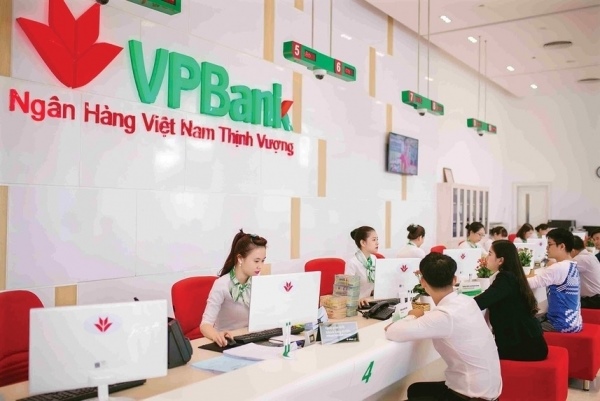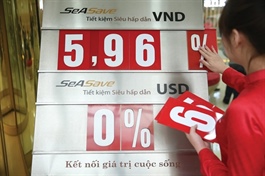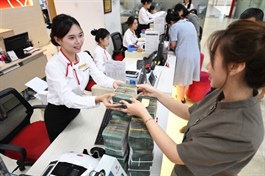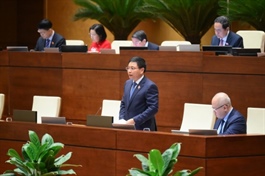Overhaul of legal framework aims to tackle bad debts
Overhaul of legal framework aims to tackle bad debts
The financial market has witnessed a wave of mandatory bank acquisitions in the recent past. Early this year, major commercial lenders MB, HDBank, and VPBank took over struggling lenders OceanBank, DongA Bank, and GPBank, respectively.

VPBank is among the lenders involved in the restructuring of underperforming banks |
After being acquired, OceanBank was renamed MBV, while DongA Bank was renamed Vikki Bank.
In late 2024, Vietcombank acquired Vietnam Construction Bank (CB) and rebranded it as VCBNeo.
According to Tran Phuoc Huy, a financial expert at the Institute of Banking and Finance at the National Economics University, these are concrete steps in implementing the credit institution system restructuring plan for the period 2021 –2025.
The plan aims to build a healthier financial environment, enhance systemic resilience, and reduce risk exposure across the sector.
"More importantly, this process has been closely directed by the Politburo, the government, and the State Bank of Vietnam, reflecting a strong commitment to resolving long-standing issues and improving transparency and operational efficiency in the banking system," said Huy.
Huy also highlighted the opening up to foreign capital as a potentially transformative move.
The government issued Decree No.69/2025/ND-CP last March, amending Decree No.01/2014/ND-CP on foreign ownership in Vietnamese credit institutions.
Effective from May 19, the new regulation allows total foreign ownership in banks undergoing mandatory transfers to exceed the traditional 30 per cent cap, up to a maximum of 49 per cent of charter capital – except for state-controlled banks.
"This is a significant policy push. It not only helps unlock capital constraints for banks taking over weaker lenders but also paves the way for attracting capable strategic investors with expertise in governance, technology, and modern financial products," said Huy. "Given that bad debt resolution requires substantial resources, raising the foreign ownership limit serves as a catalyst to reinforce capital strength, restructure assets, and modernise governance."
A June report from Viet Dragon Securities on bank asset quality revealed that the on-balance sheet non-performing loan (NPL) volume from customer lending at 27 listed banks rose by more than $1.48 billion in the first quarter of this year, after falling by VND25 trillion ($1 billion) in the fourth quarter of 2024, representing an on-quarter increase of 16 per cent.
By the start of the second quarter of 2025, the total on-book NPL volume surpassed $10.6 billion, equal to a ratio of 2.16 per cent.
Phan Duy Hung, senior analyst and director at Hanoi-based credit rating agency VIS Rating, noted that in the past two years, resolving NPLs related to real estate – including home mortgages, developer loans, and contractor financing – has posed significant challenges to Vietnamese banks.
The current market situation highlights that between 2017 and 2023, the National Assembly’s Resolution 42 – introduced as a pilot legal framework – played a key role in helping banks resolve NPLs. It allowed for faster recovery of bad debts by granting banks the right to seize collateral and streamlining court procedures.
However, since Resolution 42 expired at the end of 2023, these legal advantages no longer apply. Banks can no longer unilaterally seize collateral, and the debt recovery process through the courts has become significantly slower under existing laws.
To address this, the National Assembly is reviewing proposed amendments to the Law on Credit Institutions, which aim to enshrine essential legal mechanisms for NPL recovery.
The revised law is expected to restore the rights of banks to seize collateral and prevent these assets from being frozen in unrelated criminal cases.
Hung expressed optimism that the amended law would enhance banks' ability to recover bad debts and improve asset quality, especially for retail-focused lenders.
"Retail banks will likely benefit from reduced operating costs in monitoring small individual loans, and increased income from debt recovery. Since the majority of collateral assets are real estate, a rebound in the secondary property market in 2025 will also support the liquidation process," said Hung.
- 18:00 25/06/2025




























